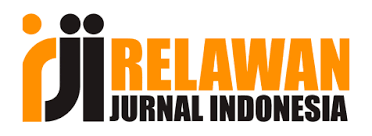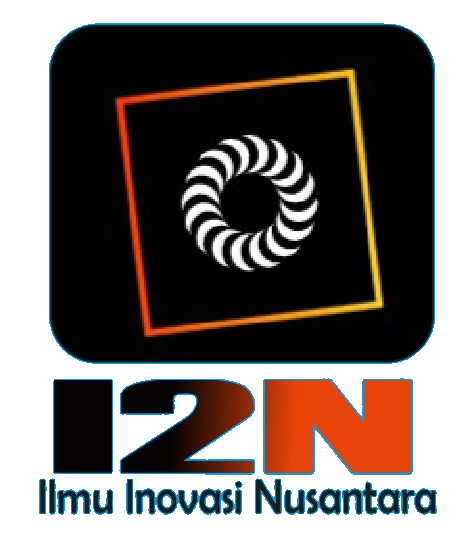Reality Counseling Approach to Increasing Career Woman Awareness (Case Study Love Scam)
DOI:
https://doi.org/10.58557/(ijeh).v5i2.313Keywords:
Career Woman, Love Scam, Reality CounselingAbstract
Globalization can influence changes in the lives of generations and change civilization from the real world to the virtual world. Technology movement has become a primary need at every age, from early childhood to the elderly. Needs increase materially, and conditions of need become higher with a standard income of UMR or below UMR. This research aims to increase career women's understanding of the functions and benefits of digital transformation. Research methodology with a qualitative approach to case study design. Research location in Cirebon. The research subjects consisted of 3 clients with indicators that love scam victims experienced levels of psychological loss, namely trauma and financial loss—client identity Career women aged 30 years, 32 years, and 34 years. Secondary subjects include 1 legal expert, 1 entrepreneur or economist, and 1 counselor. Data collection techniques using longitudinal observations and interviews. Data analysis technique with source triangulation. The research results found that counseling activities for love scam clients/victims resulted in psychological trauma and financial losses. Clients feel aware after 21 days of emotional approaches built through social media accounts or WhatsApp. The characteristics of a love scam are that the target is a career woman with a steady income, and the perpetrator builds a romantic relationship with the plan of marrying the client and taking property and temporary love by showing a fake identity. Clients feel hypnotized by false promises and romantic words of love with the perpetrator
References
Akhsania, K. N. (2018). Pendidikan karakter prososial di era milenial dengan pendekatan konseling realitas. Prosiding SNBK, 2(1), 228–233. Retrieved from http://prosiding.unipma.ac.id/index.php/SNBK/article/view/494
Alavi, K., Sooed, M. S. A., & Bakar, A. A. (2018). Love scam di Selangor: Satu penerokaan terhadap modus operandi jenayah siber ke atas wanita profesional. Jurnal Pembangunan Sosial, 21, 105–122. https://doi.org/10.32890/jps.21.2018.11558
Ayu Rizkia, A., & Rahmawati, S. (2021). Faktor-faktor yang mempengaruhi anti monopoli dan persaingan bisnis tidak sehat: Globalisasi ekonomi, persaingan usaha, dan pelaku usaha (Literature Review Etika). Jurnal Ilmu Manajemen Terapan, 2(5), 631–643. https://doi.org/10.31933/jimt.v2i5.572
Aziz, A., & Zakir, S. (2022). Indonesian Research Journal on Education: Jurnal Ilmu Pendidikan, 2(3), 1030–1037.
Darania, M. (2019). Persaingan usaha tidak sehat di Indonesia menurut hukum ekonomi Islam dan Undang-Undang Nomor 5 Tahun 1999 tentang larangan monopoli dan persaingan usaha tidak sehat. El-Jizya: Jurnal Ekonomi Islam, 7(1), 21–46. https://doi.org/10.24090/ej.v7i1.3446
Erika Prima Yola, & Pranungsari, D. (2023). Penerapan empty chair therapy pada individu dewasa dengan diagnosa episode depresif ringan. Psyche 165 Journal, 16(3), 183–188. https://doi.org/10.35134/jpsy165.v16i3.270
Fauzi, A. (2021). Pengawasan praktek monopoli sebagai bentuk persaingan usaha tidak sehat. DE LEGA LATA: Jurnal Ilmu Hukum, 6(2), 397. https://doi.org/10.30596/delegalata.v6i2.7837
Generation, M., Of, S. P., Use, M., To, S., & Fraud, O. (2024). Pola penggunaan media sosial generasi menjadi mangsa penipuan dalam talian: Millennial generation’s patterns of leisure-time social media use and susceptibility to online fraud. Jurnal Ilmiah Kajian Islam, 213–225. https://doi.org/10.55573/JISED.096419
Kardinus, A., & Rusfandi. (2022). Implementasi program pendidikan karakter untuk membangun sikap kepedulian sosial. Jurnal Penelitian dan Pendidikan IPS (JPPI, 16(1), 32. Retrieved from https://ejournal.unikama.ac.id/index.php/JPPI/article/view/6971
Khairuddin. (2022). Peranan bimbingan dan konseling Islam dalam lingkup pendidikan. Jurnal Pendidikan Tambusai, 6(1), 405–408.
Nakhma’ussolikhah. (2017). Studi tentang penggunaan cybercounseling untuk layanan konseling individual bersama mahasiswa program studi bimbingan dan konseling UNU Cirebon. Jurnal Ilmiah Kajian Islam, 2(1), 28–43. Retrieved from http://www.syekhnurjati.ac.id/jurnal/index.php/oasis/article/view/1516
Nakhma’Ussolikhah, K., Kurniawan, F. A., Novianti, C., Sulkhah, S., & Marliani, L. (2023). Kepribadian toxic people terhadap kehidupan era metaverse. KONSTELASI: Konvergensi Teknologi dan Sistem Informasi, 3(1), 142–149. https://doi.org/10.24002/konstelasi.v3i1.6959
Remaja, K., Kecemasan, & Media, P. (2023). Pemanfaatan art counseling untuk mereduksi kecemasan remaja pengguna media sosial. Jurnal Pendidikan Islam, 1257–1272.
Rizai, M. (2022). Pendidikan karakter melalui layanan bimbingan dan konseling pada siswa sekolah menengah pertama. International Conference on Islamic Guidance and Counseling, 2, 61–78. Retrieved from http://conference.uin-suka.ac.id/index.php/icigc/article/view/665
Suprihatin, E. (2021). Kontekstualisasi Roma 12:2 dalam keniscayaan dunia digital. Fidei: Jurnal Teologi Sistematika dan Praktika, 4(1), 117–139. https://doi.org/10.34081/fidei.v4i1.153
Ussolikhah, N. (2023). Pandangan logo therapy terhadap siklus pernikahan era teknologi. Coution: Journal of Counseling and Education, 4, 61–67.
Downloads
Published
How to Cite
Issue
Section
License
Copyright (c) 2025 Nakhma'ussolikhah, Imam Subasman, Lina Marliani

This work is licensed under a Creative Commons Attribution-ShareAlike 4.0 International License.














